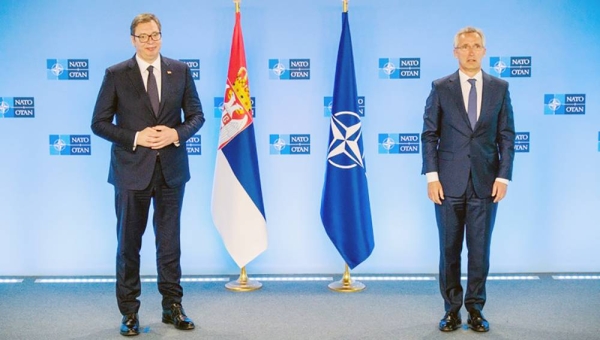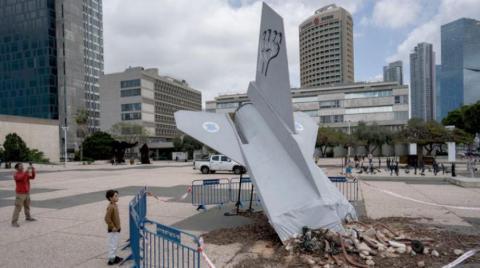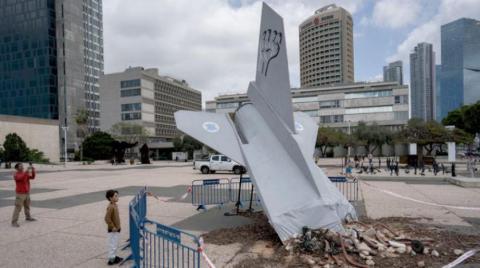
NATO Secretary General Jens Stoltenberg Sunday said he spoke to EU High Representative Josep Borrell about the current situation in Kosovo.
“Pristina and Belgrade must engage in the EU-led dialogue now, as the only way to peace and normalization,” he said on his Twitter account.
“Pristina must de-escalate & not take unilateral, destabilizing steps,” stressed Stoltenberg.
He added that NATO’s military mission in Kosovo, called KFOR, will continue to ensure a safe and secure environment.
The Kosovo police on Friday clashed with ethnic Serb protestors in northern Kosovo who were trying to prevent recently elected ethnic-Albanian officials from entering municipal buildings.
Serbia ordered its army to move closer to the border with Kosovo and urged NATO to urgently stop violence against local Serbs in Kosovo.
Ethnic Albanians make up more than 90 percent of the population in Kosovo, with Serbs in the majority only in the northern region.
NATO deployed into Kosovo in 1999, in the wake of a 78-day air campaign against the then regime of Serbian leader Slobodan Milosevic.
KFOR now consists of approximately 3,700 troops to help maintain a safe and secure environment and freedom of movement for all people and communities in Kosovo.
Kosovo declared its independence from Serbian rule in 2008 but Serbia has refused to recognize its independence.
On Saturday, Serbia condemned NATO-led peacekeepers stationed in neighboring Kosovo for allegedly failing to stop “brutal actions” by Kosovo police against ethnic Serbs.
Serbia’s top political and security leadership, led by President Aleksandar Vucic, met in Belgrade on Saturday following violent clashes a day earlier.
In response to the clashes, Vucic on Friday ordered troops closer to the border with Kosovo.
“Due to the brutal use of force by [Kosovo Prime Minister] Albin Kurti and his forces against the Serbian people in Kosovo ... the armed forces of the Republic of Serbia will remain at the highest level of combat readiness,” said a statement after the meeting of the top Serbian leadership.
The statement also said an international civilian mission and NATO-led troops — stationed in the former Serbian province since Serbian forces were forced to leave the region in 1999 — “did not do their job” to protect the Serbs.
NATO, meanwhile, urged Kosovo to dial down tensions with Serbia, a day after its government forcibly accessed municipal buildings to install mayors in ethnic Serb areas in the north of the country.
“We urge the institutions in Kosovo to de-escalate immediately and call on all parties to resolve the situation through dialogue,” said Oana Lungescu, a spokeswoman for the transAtlantic military alliance, in a Twitter post.
The United States and several Western countries condemned Kosovo’s government for using police to forcibly allow entry to the municipal buildings. Kosovo Prime Minister Kurti on Saturday defended the police action.
“It is the right of those elected in democratic elections to assume office without threats or intimidation,” Kurti said on Twitter.
“It is also the right of citizens to be served by those elected officials. Participation – not violent obstruction – is the proper way to express political views in a democracy.” — Agencies











